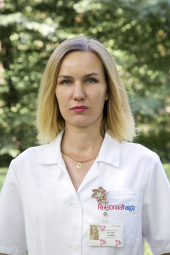The 8th department of the Psychiatry Clinic of the North Estonia Medical Centre treats patients with various mental disorders; we are mainly engaged in the diagnosis and treatment of psychotic disorders, differential diagnosis of cognitive disorders, and the study and treatment of psychosyndromes associated with concomitant physical illnesses.
Our department employs three psychiatrists, three clinical psychologists, two attending nurses, an occupational therapist, nurses on call, and caregivers.
The department provides training for resident doctors, psychologists, nurses, and caregivers.
During the hospital stay, we incorporate a holistic approach to examine the patient’s health, carrying out the analyses and tests necessary to accurately determine both the mental and physical condition of the patient. Different evidence-based methods are employed to evaluate and treat the psychological state of our patients.
In our department, patient care is based on teamwork. Upon the arrival of a patient, a medical team is formed under the supervision of the attending physician, comprising an attending nurse, a clinical psychologist, and the attending physician. The team can also include an occupational therapist and a social worker. If necessary and with the patient’s consent, family members of the patient may also be included in the team.
In addition to medical treatment, psychotherapy plays an important role in the treatment of mental disorders.
Psychotherapy is indicated for the treatment of psychiatric and behavioural disorders as well as for many somatic and neurological disorders where there is evidence of psychological factors involved in the onset, persistence, and treatment of the patient’s problems.
The Department of General Psychiatry of the North Estonia Medical Centre provides individual psychotherapy, group psychotherapy, and occupational therapy.
In individual psychotherapy, the patient’s psychopathological problems are treated with evidence-based psychotherapy methods and techniques. The aim of individual psychotherapy is to alleviate or eliminate the symptoms of mental disorders and to establish thinking and behavioural patterns for improving everyday life.
Group psychotherapy is aimed at patients who struggle with everyday problems. Group therapy enables patients to receive support from other members of the group and, through the experience of other patients, helps to learn how to deal with similar problems. The group gives the patients the feeling that they are not alone with their illness or problem.
The use of various memory aids is taught and practiced to help patients with memory disorders.
An occupational therapist is concerned with the evaluation, preservation, and promotion of the operational capacity of patients.
As mental disorders can lead to the temporary disruption of attention, memory, and concentration, occupational therapy employs exercises and tasks that help to improve these functions.
Patients have the opportunity to continue treatment in a psychiatry outpatient clinic after in-patient medical treatment.


